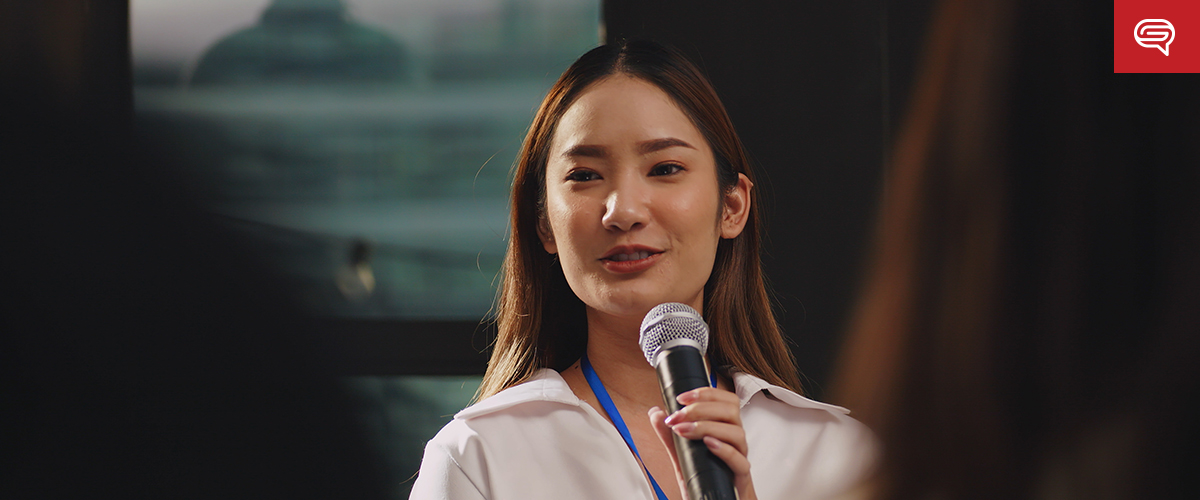While multitasking helps your productivity in some aspects, it does more harm than good for presenters. Though always being prepared for the unexpected lets you stay on top of any situation, being mindful of your audience makes you an effective presenter, increasing your chances of successfully engaging them and delivering your message.Public speaking trainer, Gary Genard, presents mindfulness as a key skill in crafting an effective pitch. Mindfulness means paying attention to what happens in the present. For Genard, this skill lets you achieve total audience engagement in your professional presentations, letting you focus on connecting with them and meeting their needs.Here’s our own take on the benefits of single-tasking:
1. Single-Tasking Lets You Focus
Some people believe that single-tasking isn’t as productive. However, focusing on one thing at a time allows the speaker to concentrate on a particular task at hand, improving your stage presence and connecting you with your audience. Aside from your interactive PowerPoint slides or speech, single-tasking enables you to speak to the crowd without being distracted.While distractions are unavoidable, remaining focused strengthens your message’s impact. It also boosts your confidence and reduces your anxiety, knowing that you’re in full control of the situation. Consider these ways to help you attain mindfulness and become a more effective presenter:
2. Single-Tasking Keeps You Mentally Present
Multitasking won’t be helpful especially when you begin worrying about what your audience thinks of you on the stage. Allowing yourself to be distracted might lose your audience’s attention and prevent them from getting interested.Since your audience is your main priority, your mind should be set on achieving their needs and wants to show that you care about them. Being mentally present also allows you to convey your topic’s most significant points as you involve your audience in your presentation.
3. Single-Tasking Helps You Develop a Single Objective
Knowing your main purpose lets you limit your ideas to an amount you can control, and lets you organize your thoughts for crafting your pitch. Once you have your topic, list down all the information you’ll include and come up with a simple objective for your pitch.Do you want them to take action? Do you want them to form small groups to discuss your topic with each other? This lets you fulfill your main goal, preventing clients from being overwhelmed with complex details.
Conclusion
Learning this discipline helps you to set your mind on what you’re presently doing. Instead of overthinking things that might negatively affect your performance, focus on the most important element of your presentation – your audience.Focus on one thing at a time without trying to juggle multiple tasks at once. Being focused means you’re more directly engaged with your audience, not distracted by a million little things you feel like you have to address all at the same time. Single-tasking also means you can condense your presentation with a single objective in mind. With less to worry about, you can direct all your resources to achieving that one goal in the most effective way.Stay focused and see how your audience does the same thing for you.To help you with your presentation needs, let SlideGenius experts assist you!
References
Genard, Gary. “Mindfulness: A Key Skill in Effective Public Speaking.” The Genard Method. October 13, 2013. Accessed August 19, 2015.”Presentation Tips: 5 Quick Steps to Audience Engagement.” SlideGenius, Inc. December 16, 2014. Accessed August 19, 2015.Featured Image: “Intel Engineers Meditating” by Intel Free Press on flickr.com





